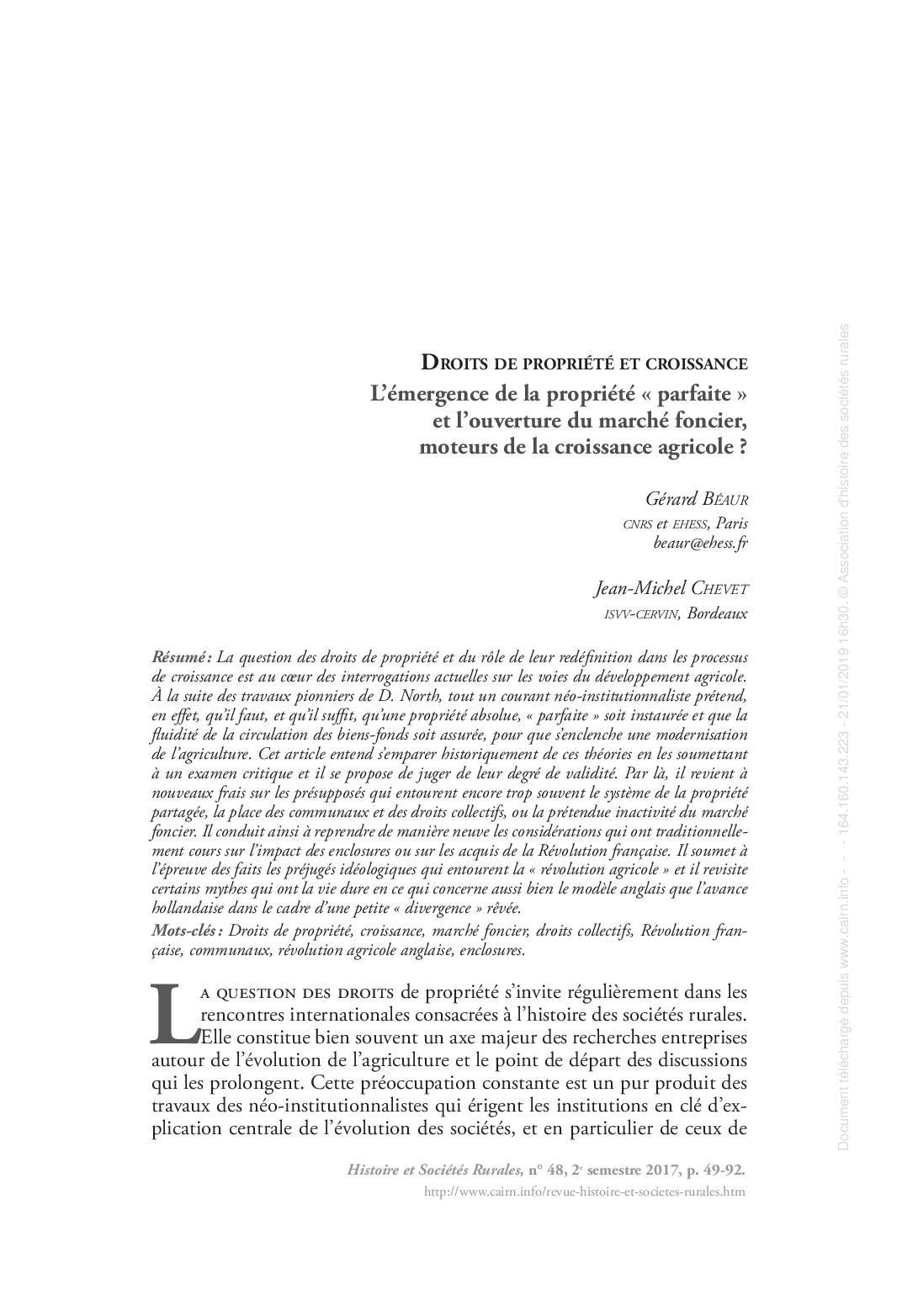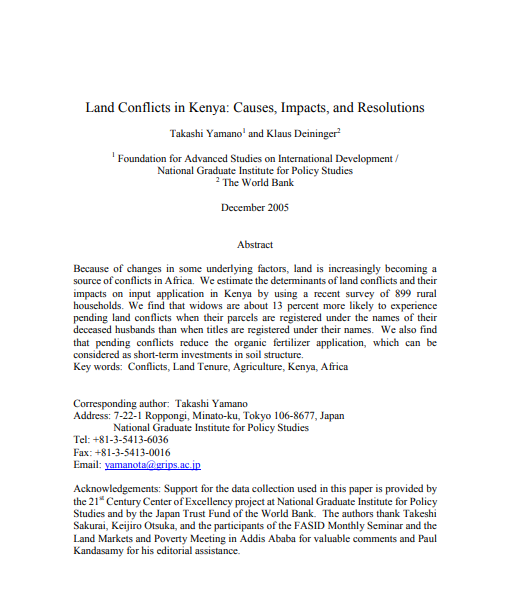Droits de propriété et croissance : l’émergence de la propriété « parfaite » et l’ouverture du marché foncier, moteurs de la croissance agricole?
Date: février 2017
Source: Foncier & Développement
Par: Gérard Béaur, Jean-Michel Chevet
La question des droits de propriété et du rôle de leur redéfinition dans les processus de croissance est au coeur des interrogations actuelles sur les voies du développement agricole.







